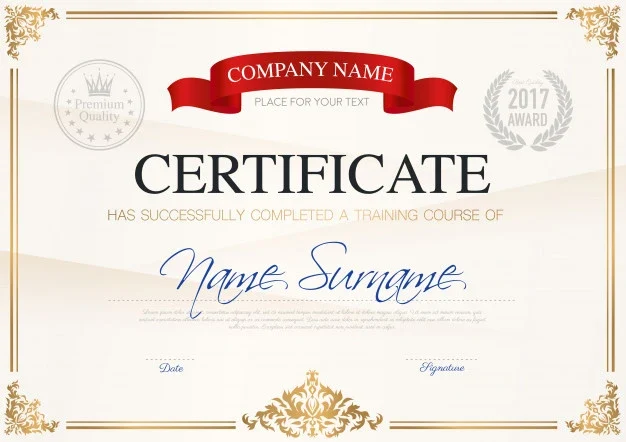
0
+
Google Reviews

0
+
SharePoint Server 2013 Developer Training in Bangalore is designed to provide comprehensive knowledge and hands-on experience for developers aiming to build robust solutions on the SharePoint platform. This course is tailored to equip participants with the essential skills and techniques required to develop, customize, and maintain SharePoint applications efficiently.


Duration of Training : 60 hrs
Batch type : weekdays /weekends/ Customized Batches
Mode of Training: Offline / Online / Corporate Training
Projects Given : 2 Projects minimum
Trainer Profile : Experienced Faculty from IT Industry
Projects | Assignment | Scenarios and Used Case Studies






General Introduction
What is IIS
IIS Website & Web Application
Steps to Create Multiple Website on Port 80
What is Application Pool
What is AppDomain
What is ISAPI Filter / Extension
Web Garden & Web Farm
HTTPS and SSL
Active Directory users and groups creation
Introduction to SharePoint 2013
What is SharePoint
High Level Features
Six Pillars of SharePoint 2013
Version History of SharePoint • Role of SharePoint Server in LAN.
Components in SharePoint • Developers Onion View of SharePoint.
SharePoint as a Developer platform
Hardware & Software Requirements
Supported Browser
Types of Installation
Software’s to be Installed
Central Administration Site
Managed Accounts
SharePoint Site Hierarchy
Web Application
Site Collection
Creating Site and Sub Site • SharePoint site Home Page.
Branding Site Look and Feel
Working with Quota Templates
Save Site as Template
Create Site from Template
Introduction to Apps SharePoint 2013
Overview of Apps
Create Custom List
Add Custom Columns
Site Columns and Groups
Sort and Filter List
Create / Manage List View
Content Type
List Template
Versioning of Data
Metadata Navigation Settings
List Throttling
Builtin Apps Configuration – List & Libraries
Predefined List Apps
Predefined Library Apps.
Editing Document properties
Version Settings
Check out, edit, and check in files.
Create folders and navigate between them
Adding Documents
Library as Template
Server Object Model
Using Microsoft.SharePoint.DLL
Site Architecture and Object Overview
SPWebApplication, SPSite, SPWeb, SPList and more…
Sample Programs to understand the Object Model
Client Object Model
Managed Object Model
Silverlight Client Object Model
Javascript Client Object Model
Using SharePoint Web Services in Client Application
SharePoint Tools for Visual Studio 2013
Visual Studio Project templates for SharePoint 2013
Server Explorer, Feature Designer, Package Explorer
Building and Deploying Solutions in Visual Studio 2013 for SharePoint 2013
Features
SharePoint Root Directory
Features Overview
Features Scope
Create a new feature and Deploying Features using VS2012
Feature Events
Manage SharePoint Solution (WSP) using PowerShell Commands
Event Receivers
Event Handlers – Before events and After Events
Event receiver base classes.
Registering Event Handlers
Example of Before Events
Programming After Events
Working with WebParts
Building a Simple Web Part
Editing Properties in Editor WebPart
Visual Web Part
Web Part Communication.
Build and Deploy the Sandboxed Solution.
Using Windows PowerShell for Administration Sandboxed Solutions.
Business Connectivity Service
Creating a BDC Project in sharepoint designer
Using Data in External List
Granting Permissions to the BDC List.
Workflow
What is Workflow
SharePoint Workflows o 3- State Workflow o Approval Workflow
Custom Workflow: Role of Visio 2010, SharePoint Designer 2010 and VS-2010
Building Workflow with SharePoint Designer 2010
Developing Workflow with Visual Studio 2010
Adding Association Forms in sharepoint designer 2010
+91 8882400500




I had undergone oracle DBA course under Chetan sir's Guidance an it was a very good learning experience overall since they not only provide us with theoretical knowledge but also conduct lot of practical sessions which are really fruitful and also the way of teaching is very fine clear and crisp which is easier to understand, overall I had a great time for around 2 months, they really train you well.also make it a point to clear all your doubts and provide you with clear and in-depth concepts hence hope to join sometime again
I have completed Oracle DBA 11g from Radical technology pune. Excellent trainer (chetna gupta). The trainer kept the energy level up and kept us interested throughout. Very practical, hands on experience. Gave us real-time examples, excellent tips and hints. It was a great experience with Radical technologies.
Linux learning with Anand sir is truly different experience... I don't have any idea about Linux and system but Anand sir taught with scratch...He has a great knowledge and the best trainer...he can solve all your queries related to Linux in very simple way and giving nice examples... 100 to Anand Sir.
I had a wonderful experience in Radical technologies where i did training in Hadoop development under the guidance of Shanit Sir. He started from the very basic and covered and shared everything he knew in this field. He was brilliant and had a lot of experience in this field. We did hands on for every topic we covered, and that's the most important thing because honestly theoretical knowledge cannot land you a job.
I have recently completed Linux course under Anand Sir and can assuredly say that it is definitely the best Linux course in Pune. Since most of the Linux courses from other sources are strictly focused on clearing the certification, they will not provide an insight into real-world server administration, but that is not the case with Anand Sir's course. Anand Sir being an experienced IT infrastructure professional has an excellent understanding of how a data center works and all these information is seamlessly integrated into his classes.
1. Basic user account management (creating, modifying, and deleting users).
2. Password resets and account unlocks.
3. Basic file system navigation and management (creating, deleting, and modifying files and directories).
4. Basic troubleshooting of network connectivity issues.
5. Basic software installation and package management (installing and updating software packages).
6. Viewing system logs and checking for errors or warnings.
7. Running basic system health checks (CPU, memory, disk space).
8. Restarting services or daemons.
9. Monitoring system performance using basic tools (top, df, free).
10. Running basic commands to gather system information (uname, hostname, ifconfig).
1. Intermediate user account management (setting permissions, managing groups).
2. Configuring network interfaces and troubleshooting network connectivity issues.
3. Managing file system permissions and access control lists (ACLs).
4. Performing backups and restores of files and directories.
5. Installing and configuring system monitoring tools (Nagios, Zabbix).
6. Analyzing system logs for troubleshooting purposes.
7. Configuring and managing software repositories.
8. Configuring and managing system services (systemd, init.d).
9. Performing system updates and patch management.
10. Monitoring and managing system resources (CPU, memory, disk I/O).
1. Advanced user account management (LDAP integration, single sign-on).
2. Configuring and managing network services (DNS, DHCP, LDAP).
3. Configuring and managing storage solutions (RAID, LVM, NFS).
4. Implementing and managing security policies (firewall rules, SELinux).
5. Implementing and managing system backups and disaster recovery plans.
6. Configuring and managing virtualization platforms (KVM, VMware).
7. Performance tuning and optimization of system resources.
8. Implementing and managing high availability solutions (clustering, load balancing).
9. Automating system administration tasks using scripting (Bash, Python).
10. Managing system configurations using configuration management tools (Ansible, Puppet).
1. Learning basic shell scripting for automation tasks. 2. Understanding file system permissions and ownership. 3. Learning basic networking concepts (IP addressing, routing). 4. Learning how to use package management tools effectively. 5. Familiarizing with common Linux commands and utilities. 6. Understanding basic system architecture and components. 7. Learning basic troubleshooting techniques and methodologies. 8. Familiarizing with basic security principles and best practices. 9. Learning how to interpret system logs and diagnostic output. 10. Understanding the role and importance of system backups and restores.
1. Advanced scripting and automation techniques (error handling, loops).
2. Understanding advanced networking concepts (VLANs, subnetting).
3. Familiarizing with advanced storage technologies (SAN, NAS).
4. Learning advanced security concepts and techniques (encryption, PKI).
5. Understanding advanced system performance tuning techniques.
6. Learning advanced troubleshooting methodologies (root cause analysis).
7. Implementing and managing virtualization and cloud technologies.
8. Configuring and managing advanced network services (VPN, IDS/IPS).
9. Implementing and managing containerization technologies (Docker, Kubernetes).
10. Understanding enterprise-level IT governance and compliance requirements.
1. Designing and implementing complex IT infrastructure solutions. 2. Architecting and implementing highly available and scalable systems. 3. Developing and implementing disaster recovery and business continuity plans. 4. Conducting security audits and vulnerability assessments. 5. Implementing and managing advanced monitoring and alerting systems. 6. Developing custom automation solutions tailored to specific business needs. 7. Providing leadership and mentorship to junior team members. 8. Collaborating with other IT teams on cross-functional projects. 9. Evaluating new technologies and making recommendations for adoption. 10. Participating in industry conferences, workshops, and training programs.
Abu Dhabi
Abu Dhabi
Abu Dhabi
Abu Dhabi
Abu Dhabi
Abu Dhabi
Abu Dhabi
Abu Dhabi
Abu Dhabi
Abu Dhabi
Abu Dhabi
Abu Dhabi
Abu Dhabi
Abu Dhabi
Abu Dhabi
Abu Dhabi
Abu Dhabi
Abu Dhabi
Abu Dhabi
Abu Dhabi
Abu Dhabi
Abu Dhabi
Abu Dhabi
Abu Dhabi
Abu Dhabi
Abu Dhabi
Abu Dhabi
Abu Dhabi
Abu Dhabi
Abu Dhabi
Abu Dhabi
Abu Dhabi
Abu Dhabi
Abu Dhabi
Abu Dhabi
Abu Dhabi
Abu Dhabi
Abu Dhabi
Abu Dhabi
Abu Dhabi






(Our Team will call you to discuss the Fees)


(Our Team will call you to discuss the Fees)
